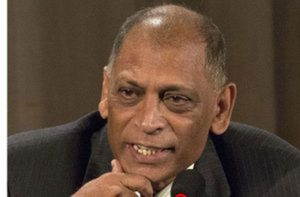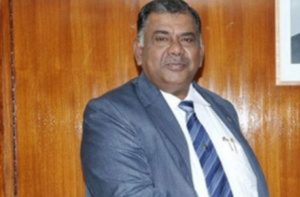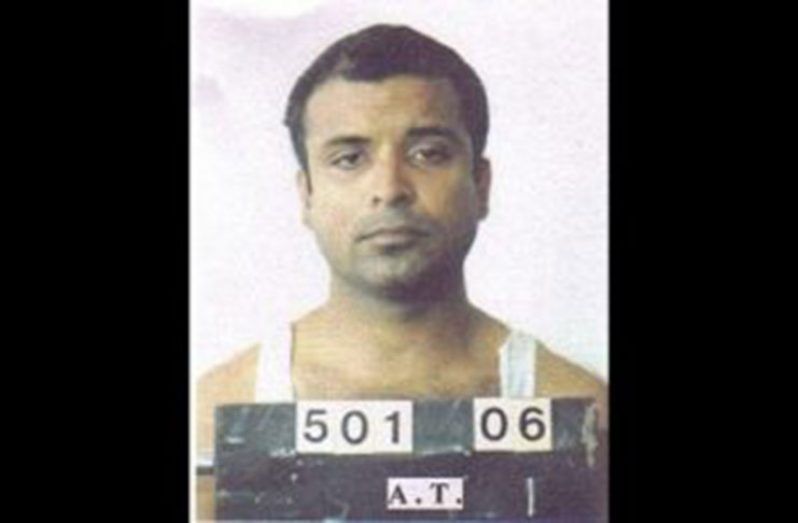…Guyana tells UN Human Rights Council
THE coalition government has told the United Nations Human Rights Council that since it took office in 2015, there have been no extrajudicial killings, and that police officers are being trained regularly.
Guyana made the comments in its National Report submitted to the United Nations Human Rights Council ahead of its third Universal Periodic Review next week in Geneva. Guyana’s human rights record will be examined by the UN Human Rights Council’s Universal Periodic Review (UPR) Working Group for the third time on Wednesday, 29 January 2020 in a meeting that will be webcast live and the government, in its national report, highlighted its efforts in improving the lives of citizens in the various sectors. Guyana is one of the 14 States to be reviewed by the UPR Working Group during its upcoming session taking place from 20 to 31 January, the UNDP said in a release. Guyana’s first and second UPR reviews took place in May 2010 and January 2015, respectively.

Under the PPP Government, extra-judicial was a feature of the society. President David Granger has dubbed the period the ‘Troubles’, which he said was the “darkest hour” of this country that was characterised by drug-driven chaos and bloodshed. Jagdeo was President of Guyana from August 11, 1999 to December 3, 2011, during which there were three massacres: Lusignan where 11 people were killed- Bartica where another 12 were killed and Lindo Creek where seven miners were slaughtered. Besides those, there were countless extra-judicial killings – with some activists estimating that around 400 Afro Guyanese males were gunned down.
Back in 2003-2006, convicted drug-trafficker, Shaheed Roger Khan, had set up a criminal network here including active policemen and a number of former ranks, ostensibly to go after criminals, but at the same time protecting his narco-trafficking interests. He was nabbed in neighbouring Suriname in 2006 while fleeing local police, and was later handed over to U.S. authorities.
Although the PPP Government had sought to distance itself from Khan, the drug-trafficker had stated publicly in an advertisement in local newspapers that he had been fighting crime on behalf of the Bharrat Jagdeo-led government. Khan had also implicated former Health Minister, Dr. Leslie Ramsammy in his escapades, and documents bearing the then minister’s signature authorising the purchase of a sophisticated wire-tapping device, were produced in U.S. courts during Khan’s trial.
Addressing a series of recommendations on the sexual and domestic violence that were made to Guyana during the second Universal Periodic Review, the government said the Sexual Offences Act of Guyana is fully implemented and enforced. The Sexual Offences Court was established in 2017. Since its inception in November 2017, the court has heard 44 cases. Of the cases heard, 31 convictions were made, and 13 ended in acquittals. Sentences for those convictions ranged from nine years to life. A handbook on the Sexual Offences Act was also published. Further in 2017, under the Ministry of Social Protection, the Sexual Offences and Domestic Violence Policy Unit (SO&DVPU) is responsible for raising awareness on the effects of sexual offences, gender-based violence and domestic violence. The 2017-2021 national plan of action for the implementation of the sexual offences and domestic violence 2010 Act is intended to be implemented throughout Guyana by the sexual violence unit of the Ministry of Social Protection, under the guidance of the National Task Force on Sexual and Domestic Violence.
JUSTICE AND SECURITY SECTOR REFORMS
Also addressing recommendations in the area of justice and security reforms, the Guyana Government, said under the Police Complaints Authority Act (PCA), any person who has reasonable grounds to believe that a member of the force is guilty of any misconduct (includes being guilty of an unlawful or unnecessary exercise of authority – one component of which is the unnecessary use of violence to any prisoner, or other person with whom he may be brought into contact in the execution of his duty), can make a report to the authority. Generally, complaints must be investigated as soon as practicable by a member of the Police Force not below the rank of sergeant and of higher rank than the member of the force who is alleged to have committed the offence. The complete investigation procedure can be found in the Police (Discipline) Act read in conjunction with the PCA. In 2018, the Authority reported that it received a total of 513 complaints against members of the force. Of those complaints, 159 were rejected, 276 were closed, 98 were pending investigation and five were referred to the Police Service Commission or the Police Disciplinary Authority for advice.

Additionally, government said the Prison Act provides for measures to safeguard the rights of prisoners. Section 14 of that Act mandates the Director of Prisons, as often as may be necessary, to visit and inspect all prisons and make an annual report to the minister on the administration and condition of the prisons, the conduct and treatment of prisoners and such other matters relating to the prisons or to prisoners as he may think fit.
Additionally, government said there is a mechanism of ‘Visiting Justices’ under sections 46 and 47 of the Prison Act. Section 46(1) stipulates that there shall be in respect of each prison in Guyana, a Board of Visiting Justices, and the Minister may appoint for such time as may be specified in the appointment such and so many justices to be members of such Board. Subsection (2) goes on to state that all judges of the High Court and magistrates shall be ex-officio visiting justices for each of the prisons of Guyana. Section 47 (1) makes provision for a visiting justice to at any time visit any prison in respect of which he is a visiting justice, and to inspect any part of such prison, enquire into and examine the food, diet, clothing, treatment and conduct of prisoners, may question any member of the prison staff or prisoner, hear complaints from any prisoner, enquire into any abuses and irregularities in any prison. That section also states that a Visiting Justice shall ascertain as far as possible whether the provisions of the Act and the Prison Rules are being complied with, and may make a report upon any such matters to the minister.




.png)









